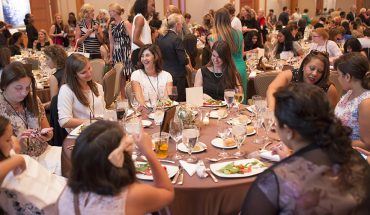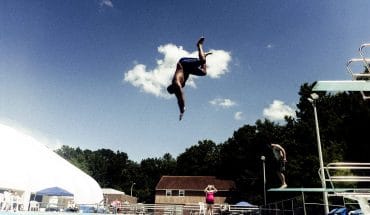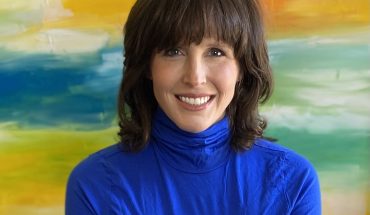by Karen Lewis Taylor
There’s no such thing as a casual conversation with David Rigsbee.
His affinity for the complexities of human experience pushes against the limits of the everyday exchange. He speaks with an intensity that’s deepened by adept references to literature, philosophy, and, most importantly, the poetic tradition that has inspired his own well-regarded body of work.
Thoughtful yet approachable, he refuses to pussy-foot around the pain of loss. At the same time, he hums with restless optimism. His gaze is pulled ever toward the future.
Little wonder, then, that the poems he writes – meditative, nuanced, steeped in deep regard for beauty – pull us into a world in which fleeting moments gleam with significance. Where grief, re-examined, becomes a springboard to greater humanity.
“His poems speak not just to understanding but to imagination and judgment,” says Dianne Goettel of Black Lawrence Press, publisher of Rigsbee’s work since his 2009 work The Pilot House. “In the words of (poet) Peter Makuck, ‘Few other poets so powerfully capture both the ignorant cruelty and profound love we bear one another.’ ”
Rigsbee, 65, grew up in Durham. While his father, a machinist at Liggett & Myers, and mother, a school secretary, enjoyed little opportunity for upward mobility, Rigsbee remembers a home in which music was ever-present.
“My dad had wanted to be a jazz musician,” he says. “He didn’t talk about it, but he could play anything. Growing up, I was aware of the love of music.” That artistic foundation was complemented by David’s growing interest in poetry.
“The things we had to memorize in school – Frost’s Stopping by the Woods on a Snowy Evening, that sort of thing – felt powerful to me,” he says. “I think, also, because I grew up in a house where emotions were not overly encouraged, that language could take care of your sense of emotional widening or amplification but control it in an artistic way, I felt close to that.”
Coming of age during the 1960s gave Rigsbee a glimpse into the power of poetic language. “We were all listening to Bob Dylan,” he says, but it was not until he started at UNC Chapel Hill in 1967 that he was able to fully apprehend the role poetry could play in his life.
“When I started to see the (literary) landscape and how people approached these problems and what their subject areas are – who brings in the most art and who tries to be artless – then poetry started to be useful to me. It multiplied geometrically, too. It burst out.”
To be filled up
Rigsbee identifies “the Yeatses and Seamus Heaneys and Robert Lowells,” poets who “work on the level of the syllable,” as early inspirations. “From the very beginning,” he says, “I tried to work on a small level, understanding the way words work and how they relate to each other.”
He followed his undergraduate degrees in Russian and English with an M.A. in creative writing, devoting his thesis to translating Russian poet Joseph Brodsky. He later earned graduate degrees in philosophy and English, all the while publishing poetry.
“At each stage it seemed like I was there to be filled up, to be fueled and engaged,” he says.
It was while he was working on his Ph.D. in English – in a grim irony, his focus was the elegy – that his brother, Steve, committed suicide. That loss still resonates with David, personally and artistically.
“When you write, you write to someone. It could be a straw person; it could be, as T.S. Eliot says, a compound ghost; it could be a person you know. I write poems for specific people, people I would call ‘beloved.’ These days I write with my brainy daughter, Makaiya, in mind,” he says. “My brother was one of those people. He was comfortable and familiar in a profound way. When he left so abruptly, I lost part of that.”
The struggle to make sense of such loss has shaped his poetic sensibility. “I’ve found his elegies to be his best work,” says poet Al Maginnes, who reviewed Rigsbee’s The Red Tower for the N.C. Literary Review in 2010. “We use poetry to remember.”
But Rigsbee is equally devoted to an aesthetic ideal.
“Auden says poetry doesn’t make anything happen, and it doesn’t, but because beauty sits there it gives you something to work for,” he says. “I would like to do something beautiful.”
Brought to the surface
Rigsbee has earned numerous awards for his work, including the 2010 Sam Ragan Award for contributions to the arts in North Carolina and a 2012 Pushcart Prize for his poem Russians. In 2013 he was awarded his second NEA Fellowship, with which he explored “a new direction” in his art.
“I’ve spent a lot of my life writing these layered poems, and people would come to the readings and say, ‘I liked that. I’ll have to buy the book’ – meaning, to figure out what it means,” he says with a laugh. “A lot of my recent poems have been story-poems. I’ve brought things to the surface that used to be buried.”
While Rigsbee’s recent work, beginning with 2012’s School of the Americas, is, as Maginnes says, “more narrative and more accessible,” it is no less powerful. Rigsbee mines difficult moments from his past, revisiting his brother’s suicide in The Slug and recounting his uncomfortable brush with ’70s counterculture icon Gil Scott-Heron in Gil’s Sentence — to deliver what critic Carolyne Wright calls “psychic jolts” as he explores “subtle internal transformations” and reaches for “difficult epiphanies.”
In characterizing his work, Ginger Murchison of The Cortland Review, where Rigsbee serves as contributing editor, quotes from his Charlotte Mew: “ ‘You need the words, whatever else/ Bears witness to the dance in middle air.’… David’s perspective on ‘the dance in middle air’ comes from a wide knowing with a deeply human sensibility, often sparklingly funny.”
Rigsbee has undergone changes in his life as well as his art. In 2013 he retired from teaching at Mount Olive College and undertook his fellowship in Hudson, NY, just as his 18-year marriage to painter Jill Bullitt was breaking up. He has regained his footing in part through several new, and aptly poetic, ventures.
He accepted a position at the N.C. School of Science and Math in Durham because, he says, “I realized I missed my students. And it happens the campus of this school is where I was born: the former Watts Hospital. We passed by the (old) maternity ward during a tour and I thought, ‘I was in there once!’ So it’s a homecoming.”
His current poetry project offers a similar symmetry – looking back while moving forward – as he translates the Paradiso, Dante’s imagined journey through Heaven. “My (translating) partner told me, ‘Everyone does the Inferno, but it’s like looking into a sewer. Doing the Paradiso is like looking into a celestial kaleidoscope,’” he says. “I’ll take the kaleidoscope and leave the sewer to other poets.”
Rigsbee’s desire is to gaze heavenward. “Otherwise,” he says, “you’re in the other place moping about, hopeless.” It touches upon what he sees as the essence of poetry: reaching into the unknown, envisioning the unknowable.
“Dante says in the beginning of the Paradiso, ‘I can’t be doing this, but that’s not going to stop me,’” he says.
“Well, it’s not going to stop me, either.”
A Life Preserver
He watches the light move in and out
behind the evening clouds and listens
to the wild duck’s long, sad cadence,
interrupted by crows. He senses
the still air is indifferent
to these rituals. For all that,
he knows the connections there
are the nodes of moments
already deep in the braid
of a rope, coiled and put
in a public place under lock and key,
a life preserver, in case of emergency.




